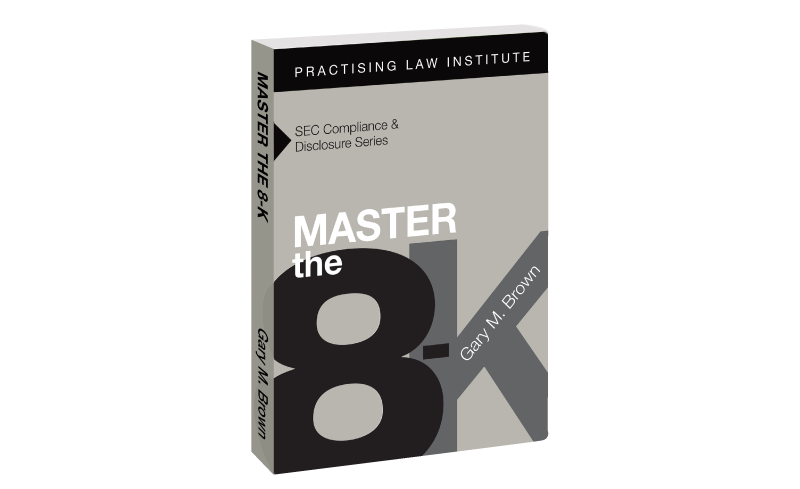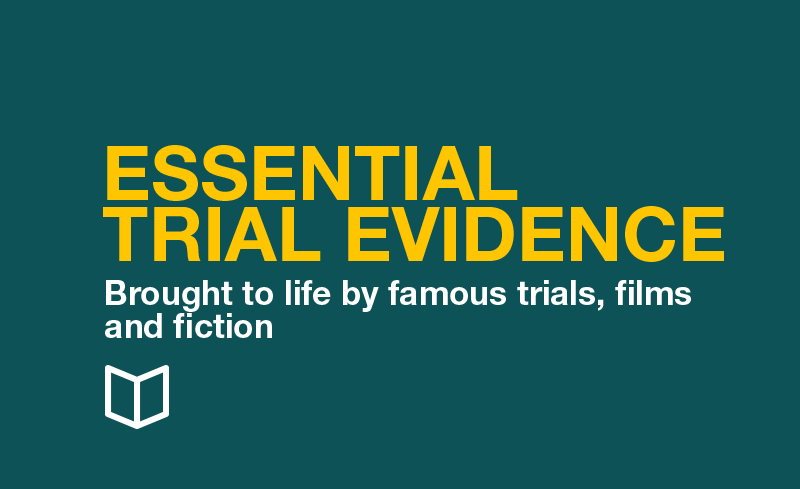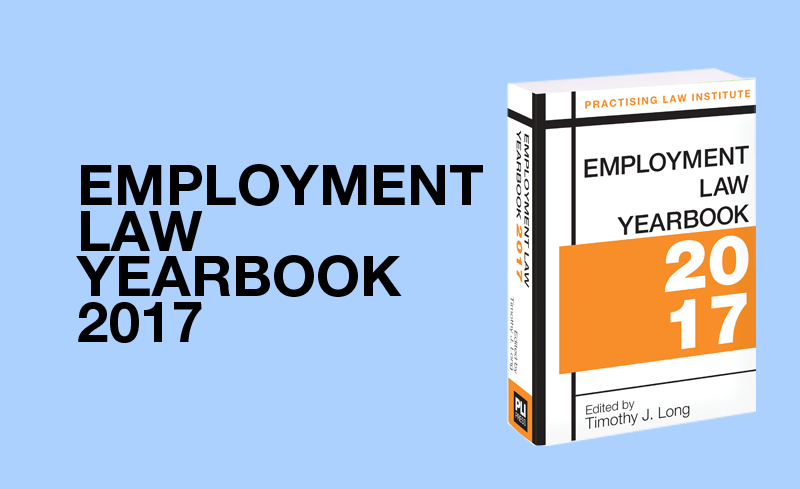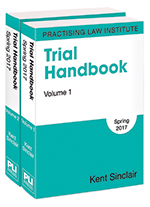 Master the 8-K is the first publication from PLI’s new SEC Compliance and Disclosure series. It is a clear, concise, and comprehensive guide to filing the SEC’s Current Report on Form 8-K that every securities lawyer will want to have close at hand.
Master the 8-K is the first publication from PLI’s new SEC Compliance and Disclosure series. It is a clear, concise, and comprehensive guide to filing the SEC’s Current Report on Form 8-K that every securities lawyer will want to have close at hand.
This handbook begins with an overview of the Form 8-K requirements and principles generally applicable to all Form 8-K Items, such as:
- Filing procedures and deadlines
- The impact of late filings (including a discussion of the “safe harbor”) (including a discussion of the “safe harbor”)
- The “furnished” versus “filed” distinction, the technical aspects of incorporation by reference and exhibits, and related liability issues, and related liability issues
In this easy-to-use handbook, each Form 8-K Item is broken down and begins with “highlights” that, at a glance, alert you to critical matters about that Item, such as whether the “safe harbor” applies, whether there are exhibit requirements, whether there are possible update requirements, and whether there are critical definitions to consider. Then, you will find step-by-step instructions and expert practice tips on:
- Triggering events and disclosure requirements for every Form 8-K Item
- The requirements for effective disclosure controls
- Filing procedures and deadlines
- Possible 8-K “traps”, such as update requirements, and how to avoid them
Master the 8-K also includes sample disclosure language, and detailed appendices containing the Form 8-K itself, key regulations, and SEC Compliance and Disclosure Interpretations (C&DIs)—it is intended to be a stand-alone resource for those attempting to master the Form 8-K.
This essential title is available on PLI PLUS, our online research database. If you’d like to order a print copy, please email libraryrelations@pli.edu or call (877-900-5291).
 PLI’s
PLI’s  The
The  Trial Handbook (Spring 2017 Edition
Trial Handbook (Spring 2017 Edition

